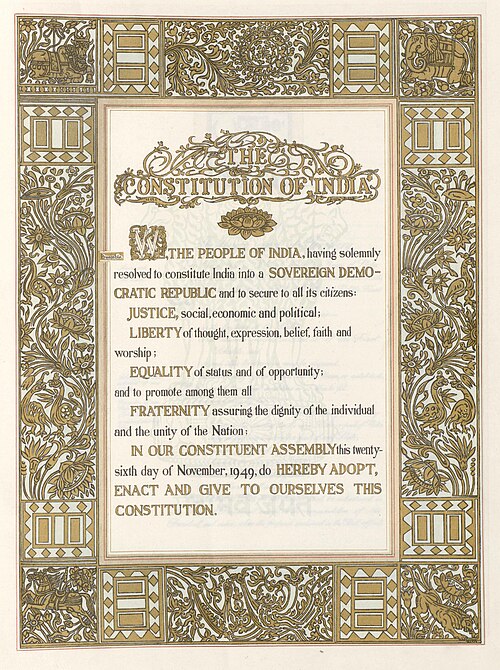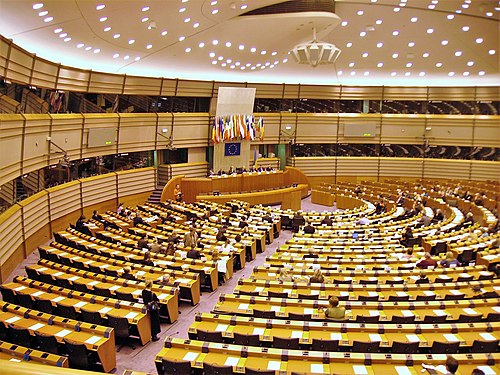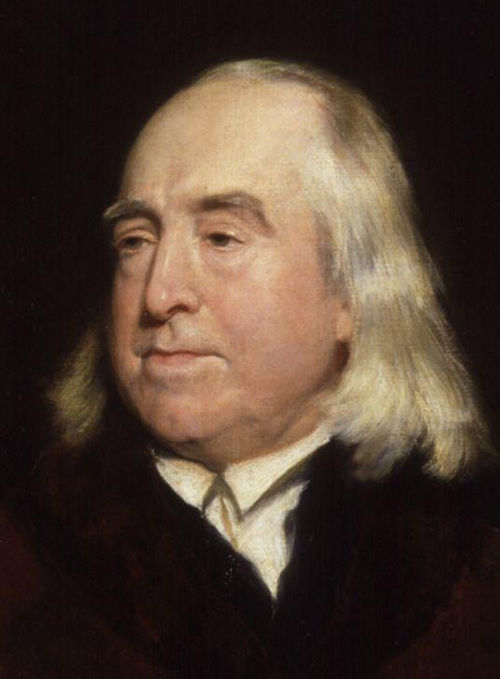Actnoun
(countable) Something done, a deed.
Actnoun
Actuality.
Actnoun
(countable) A product of a legislative body, a statute.
Actnoun
The process of doing something.
Actnoun
(countable) A formal or official record of something done.
Actnoun
(countable) A division of a theatrical performance.
Actnoun
(countable) A performer or performers in a show.
Actnoun
(countable) Any organized activity.
Actnoun
(countable) A display of behaviour.
Actnoun
A thesis maintained in public, in some English universities, by a candidate for a degree, or to show the proficiency of a student.
Actnoun
(countable) A display of behaviour meant to deceive.
Actverb
(intransitive) To do something.
Actverb
To do (something); to perform.
Actverb
(intransitive) To perform a theatrical role.
Actverb
(ergative) Of a play: to be acted out (well or badly).
Actverb
(intransitive) To behave in a certain way.
Actverb
(copulative) To convey an appearance of being.
Actverb
To do something that causes a change binding on the doer.
Actverb
To have an effect (on).
Actverb
(transitive) To play (a role).
Actverb
(transitive) To feign.
Actverb
To map via a homomorphism to a group of automorphisms (of).
Actverb
To move to action; to actuate; to animate.
Actnoun
That which is done or doing; the exercise of power, or the effect, of which power exerted is the cause; a performance; a deed.
Actnoun
A state of reality or real existence as opposed to a possibility or possible existence.
Actnoun
Process of doing; action. In act, in the very doing; on the point of (doing).
Actverb
To move to action; to actuate; to animate.
Actverb
To perform; to execute; to do.
Actverb
To perform, as an actor; to represent dramatically on the stage.
Actverb
To assume the office or character of; to play; to personate; as, to act the hero.
Actverb
To feign or counterfeit; to simulate.
Actverb
To exert power; to produce an effect; as, the stomach acts upon food.
Actverb
To perform actions; to fulfill functions; to put forth energy; to move, as opposed to remaining at rest; to carry into effect a determination of the will.
Actverb
To behave or conduct, as in morals, private duties, or public offices; to bear or deport one's self; as, we know not why he has acted so.
Actverb
To perform on the stage; to represent a character.
Actnoun
a legal document codifying the result of deliberations of a committee or society or legislative body
Actnoun
something that people do or cause to happen
Actnoun
a subdivision of a play or opera or ballet
Actnoun
a short theatrical performance that is part of a longer program;
Actnoun
a manifestation of insincerity;
Actverb
perform an action, or work out or perform (an action);
Actverb
behave in a certain manner; show a certain behavior; conduct or comport oneself;
Actverb
play a role or part;
Actverb
discharge one's duties;
Actverb
pretend to have certain qualities or state of mind;
Actverb
be suitable for theatrical performance;
Actverb
have an effect or outcome; often the one desired or expected;
Actverb
be engaged in an activity, often for no particular purpose other than pleasure
Actverb
behave unnaturally or affectedly;
Actverb
perform on a stage or theater;
Lawnoun
The body of binding rules and regulations, customs, and standards established in a community by its legislative and judicial authorities.
Lawnoun
The body of such rules that pertain to a particular topic.
Lawnoun
Common law, as contrasted with equity.
Lawnoun
A binding regulation or custom established in a community in this way.
Lawnoun
(more generally) A rule, such as:
Lawnoun
Any rule that must or should be obeyed, concerning behaviours and their consequences. mores.}}
Lawnoun
A rule or principle regarding the construction of language or art.
Lawnoun
A statement (in physics, etc) of an (observed, established) order or sequence or relationship of phenomena which is invariable under certain conditions. theory.}}
Lawnoun
A statement (of relation) that is true under specified conditions; a mathematical or logical rule.
Lawnoun
Any statement of the relation of acts and conditions to their consequences.
Lawnoun
(cricket) One of the official rules of cricket as codified by the its (former) governing body, the MCC.
Lawnoun
The control and order brought about by the observance of such rules.
Lawnoun
A person or group that act(s) with authority to uphold such rules and order (for example, one or more police officers).
Lawnoun
The profession that deals with such rules (as lawyers, judges, police officers, etc).
Lawnoun
Jurisprudence, the field of knowledge which encompasses these rules.
Lawnoun
Litigation, legal action (as a means of maintaining or restoring order, redressing wrongs, etc).
Lawnoun
An allowance of distance or time (a head start) given to a weaker (human or animal) competitor in a race, to make the race more fair.
Lawnoun
(fantasy) One of two metaphysical forces ruling the world in some fantasy settings, also called order, and opposed to chaos.
Lawnoun
An oath sworn before a court, especially disclaiming a debt. wager of law", "wage one's law", "perform one's law", "lose one's law".}}
Lawnoun
(obsolete) A tumulus of stones.
Lawnoun
A hill.
Lawverb
(obsolete) To work as a lawyer; to practice law.
Lawverb
To prosecute or sue (someone), to litigate.
Lawverb
(nonstandard) To rule over (with a certain effect) by law; govern.
Lawverb
(informal) To enforce the law.
Lawverb
To subject to legal restrictions.
Lawinterjection
(dated) An exclamation of mild surprise; lawks.
Lawnoun
In general, a rule of being or of conduct, established by an authority able to enforce its will; a controlling regulation; the mode or order according to which an agent or a power acts.
Lawnoun
In morals: The will of God as the rule for the disposition and conduct of all responsible beings toward him and toward each other; a rule of living, conformable to righteousness; the rule of action as obligatory on the conscience or moral nature.
Lawnoun
The Jewish or Mosaic code, and that part of Scripture where it is written, in distinction from the gospel; hence, also, the Old Testament.
Lawnoun
An organic rule, as a constitution or charter, establishing and defining the conditions of the existence of a state or other organized community.
Lawnoun
In philosophy and physics: A rule of being, operation, or change, so certain and constant that it is conceived of as imposed by the will of God or by some controlling authority; as, the law of gravitation; the laws of motion; the law heredity; the laws of thought; the laws of cause and effect; law of self-preservation.
Lawnoun
In mathematics: The rule according to which anything, as the change of value of a variable, or the value of the terms of a series, proceeds; mode or order of sequence.
Lawnoun
In arts, works, games, etc.: The rules of construction, or of procedure, conforming to the conditions of success; a principle, maxim; or usage; as, the laws of poetry, of architecture, of courtesy, or of whist.
Lawnoun
Collectively, the whole body of rules relating to one subject, or emanating from one source; - including usually the writings pertaining to them, and judicial proceedings under them; as, divine law; English law; Roman law; the law of real property; insurance law.
Lawnoun
Legal science; jurisprudence; the principles of equity; applied justice.
Lawnoun
Trial by the laws of the land; judicial remedy; litigation; as, to go law.
Lawnoun
An oath, as in the presence of a court.
Lawverb
Same as Lawe, v. t.
Lawinterjection
An exclamation of mild surprise.
Lawnoun
legal document setting forth rules governing a particular kind of activity;
Lawnoun
the collection of rules imposed by authority;
Lawnoun
a generalization that describes recurring facts or events in nature;
Lawnoun
a rule or body of rules of conduct inherent in human nature and essential to or binding upon human society
Lawnoun
the learned profession that is mastered by graduate study in a law school and that is responsible for the judicial system;
Lawnoun
the force of policemen and officers;
Lawnoun
the branch of philosophy concerned with the law and the principles that lead courts to make the decisions they do
Law
Law is a system of rules created and enforced through social or governmental institutions to regulate behavior, with its precise definition a matter of longstanding debate. It has been variously described as a science and the art of justice.
























